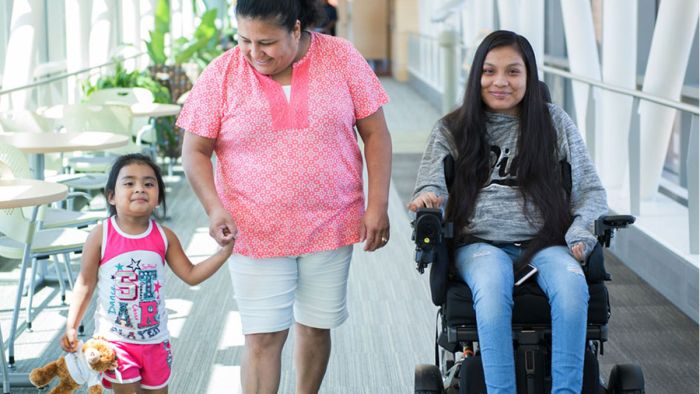Many providers have witnessed the devastating consequences of disorganized, unplanned pediatric transition to adult care for patients. This can be especially difficult for patients who have early-onset conditions despite the inevitability of this change in care.
Tori Bahr, MD, from the Gillette Complex Care Clinic is leading efforts to strengthen support for patients who are transitioning to adult care providers. "The truth is, the transition to adulthood is dangerous for our patients," Bahr says, "Research describes a rise in hospitalizations, nonadherence, and incredible amounts of patient/familial stress, all leading to poor outcomes. If our patients do not successfully transition to adult care all our hard work in childhood may not be fully realized for every patient."
At Gillette, an effective transition to adult care is more than scheduling the patient in the Phalen-Adult clinic—it is a process of purposeful planning, partnership building and preparing patients to navigate the adult healthcare system.
What does successful transition look like?
Successful pediatric transition to adult care ideally includes these elements as a child grows into adulthood:
- Identifying skills the patient and family will need and educating them before transition
- Sharing resources in the community to support families during this process
- Discussing guardianship
- Choosing an adult healthcare system in their community to coordinate their adult care into one system as much as possible
- Identifying an adult PCP when the patient is between 18-21 years old for longer collaboration with PCPs, building the PCPs' comfort level and knowledge to successfully care for the patient long term
- Selecting adult specialists, which may include providers at the Phalen-Adult clinic and throughout the community
- Developing a plan for acute hospitalization as they get close to 26 years old
- Creating medical summaries so that adult providers are better prepared for our complex patients
What You Can Do to Help
Gillette specialists are working to build relationships with adult specialists throughout the region to reinforce the successful transition of care into adulthood. There are ways you can help your patients with transition as they age, including:
- Implement transition conversations into your clinic visits. Do your patients know what your age limit is? Do you encourage patients to remember to take their medications by themselves? Do you ask parents to leave the room for a brief period during your appointments to ask their own questions?
- Make early referrals: consider referrals to adult specialists for patients with complex medical conditions if you have concerns about their ability to successfully navigate the process. The earlier you refer, the better.
- Reach out if you want to be involved in creating transition programs or resources for your specialty.
For more information on adult transition and Complex Care Clinic services at Gillette, call 651-325-2200.
Get Partners in Care Stories in your inbox!
Subscribe to Partners in Care Journal, a newsletter for healthcare providers and community health professionals.
Subscribe Today Home Page
Home Page



